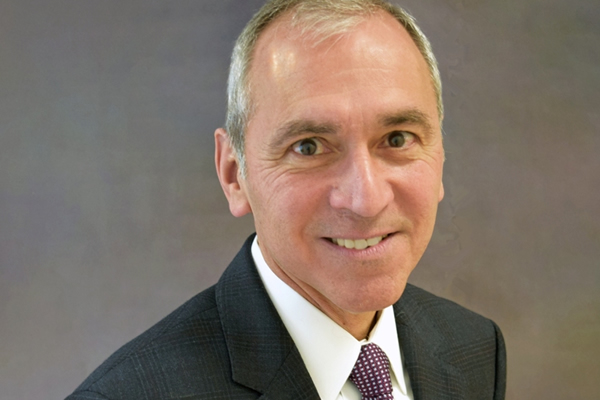BALTIMORE, MD | June 21, 2017 at 2:43 pm EDT | by Steve Charing
Original article can be found at: http://www.washingtonblade.com/
BALTIMORE — Last August, the terminations of five popular mid-level managers by Chase Brexton Health Care’s then-CEO Richard Larison reverberated throughout Baltimore’s LGBTQ community. The anger, though building over time toward the Baltimore-based health provider, reached its zenith when the firings took place.
Critics said the action was an attempt by management to discourage other employees from unionizing. Moreover, those individuals who were terminated were known to have provided quality health care services to a multitude of patients, many of whom are low-income transgender individuals who have no other access to care.
Protests were held outside Chase Brexton’s Mount Vernon headquarters 10 days after the firings; an online petition that expressed outrage over management’s actions circulated. Later that month the employees voted overwhelmingly to join 1199 SEIU Maryland/DC Division despite management’s opposition.
With the turmoil still percolating, Larison announced in November he was not seeking a new contract and would step down at the end of the year.
“While this was a considerably difficult decision, I believe ending my tenure at Chase Brexton will allow the organization to move forward,” Larison said in a statement.
In January, Patrick Mutch, who had served as interim president and CEO at Baltimore’s St. Agnes Hospital, was hired to replace Larison. Since then, union representatives and the Chase Brexton management team began collective bargaining for the first union contract.
While some of those critics stepped back to give the new CEO an opportunity to repair the damage resulting from the firings and what was seen as union busting efforts, others remain skeptical and have not yet identified significant improvements.
In an email interview with the Blade, Mutch recognized there was a palpable backlash from many in the LGBTQ communities, but said he is optimistic.
“I feel that I am making a positive impact every day in building a culture of trust, in ways that I might not have been able to make in previous roles,” he said.
Asked what steps he has taken with respect to the communities who are angered by the firings, Mutch touted the work from the board and staff, including the LGBT Health Resource Center, in “continuing to build relationships with community members across the state, expanding programming, support services, and improving our own care along the way.”
Mutch points to a growth in re-engagement through elder events, ‘lunch and learns’, and the pediatric trans care program, which currently provides care for more than 800 trans youth. But he acknowledges, “rebuilding trust and engaging our communities takes time – there’s no quick fix.”
Ava Pipitone, executive director of the Baltimore Transgender Alliance, hasn’t noticed significant progress to this point.
“It’s hard to directly connect the new CEO to any improvements at Chase Brexton,” Pipitone told the Blade. She credits the organizing efforts of SEIU and community groups for any progress.
“There are still some issues with the new systems having people’s old information. The new people at the counters not being up to speed with trans vocabularies and not understanding how to greet people without using gendered titles. That takes time and was always an issue.”
Pipitone added, “In trans care, another doctor left this winter. We feel the pinch despite the wonderful care of the remaining doctors. It’s an issue of capacity. And the solution is to invest in trans care.”
In terms of the SEIU, Mutch says they are continuing the negotiations in good faith. “It’s a long process, but I and the leaders of Chase Brexton are focused on ensuring our providers and teams have the support they need in order to provide the best care possible.”
Brian Owens, Regional Organizing Coordinator for 1199SEIU and who is heavily involved in the negotiations, is cautiously optimistic.
“We began bargaining with Chase Brexton in November and then agreed to a short break while Mr. Mutch got his bearings in the organization,” Owens told the Blade. “Over the last few months we have continued to bargain in good faith, but we believe management has yet to fully recognize the problems that exist at Chase Brexton. However, we are hopeful that we will be able to reach an agreement soon.”
Aside from complaints about the diminishing level of health care over the years principally in care for transgender patients and in HIV/AIDS and the removal of “LGBT” from Chase Brexton’s mission statement in 2010, the decision to fire the five managers seems to have roiled the community more than anything. The protests have included the demand to hire back the managers.
The hope to restore these managers, however, was dashed by Mutch.
“I can’t change what has happened – nor will I try to second guess any decisions made,” he says, “but I believe our history and the work we do in our community are vital.”
Many are still seething over what has been perceived to be the removal of LGBT as a focus in the mission of Chase Brexton. Mutch maintains that Chase Brexton’s mission has been rooted for 40 years in the LGBT community and that focus will continue. He points out that the change in the mission statement reflects the significant growth in the patient population and addresses the broader community to ensure all patients were welcomed.
“Our mission states that we provide compassionate, quality health care that honors diversity, inspires wellness, and improves our communities,” Mutch explains. “We want to honor diversity in all its forms – including the diversity that fits into the community of LGBT. Chase Brexton best serves our LGBT patients by ensuring they are receiving high quality care that is comprehensive and addresses all aspects of health.”
He added, “We have a powerful LGBT Health Resource Center and offer LGB and Trans-specific care for all ages. The depth of our professional and social support for the LGBT patients stands apart from any other local provider, and our staff, leadership, and board are committed to providing exceptional care for our LGBTQ communities.”
Despite the changes, criticism persists from some in the community.
Doug Rose, an outspoken critic of Chase Brexton, said, “The LGBT communities founded and built Chase Brexton. But current directors have decided that providing culturally competent services to our communities is no longer a priority.”
Cody Lopez, an African-American male who has been HIV-positive since 2012, told the Blade he had to change doctors several times at Chase Brexton because of what he describes as “provider privilege” within the HIV prevention and treatment world.
“Providers hold all of the power and privilege as compared to their patients.” Lopez said. “Some providers see themselves as all knowing, all seeing and infallible and they view their clients as docile, uninformed and at fault for their own heath. When in reality we know that this type of power dynamic is not healthy and conducive to ending the HIV epidemic, especially in the black LGBTQ male community where the CDC estimates that 1 in 2 black gay and bisexual men will become HIV positive in their lifetime.”
On the other hand, Lopez praised Chase Brexton’s Case Management Department as “dedicated, culturally competent and caring” because without their help, he would have gone through 2016 without health insurance.
“Instead of having me fall out of care due to lack of insurance, my case manager ensured me that she would not let me go a year without healthcare. For the next year, all of my co-pays for provider visits were fee-scaled to $0 and MADAP, Maryland AIDS Drug Assistance Program, would continue to cover my monthly HIV medication prescription.
“Without this level of case management, I would not have been able to maintain my undetectable HIV status. Since I have been a client at Chase Brexton I can say that they do have one of the better case management departments in the city that is easily accessible and culturally competent. Today, I am fully insured and happy I am happy to say that I am still HIV undetectable,” Lopez said.
Some contend the firing of practitioners involved in transgender health cut to the heart of the city’s most vulnerable population leaving a number of patients without a primary care physician. Mutch says he understands the frustration and fear, and knows there were many factors that compounded those feelings.
“I want patients to know we are focused on trans care – definitively. We currently have 20 providers specialized in transgender and gender-diverse care available to patients across our centers, and we continue to train and recruit more. We know there is work to be done, we know we still have areas for improvement, but we are willing to do the work because the inequities in care our trans and gender-variant patients often face outside of Chase Brexton are immense and disturbing.”
He added, “Knowing that we are the only Federally Qualified Health Center in Maryland that specifically focuses on trans care adds another layer of responsibility to our work. We need to be among the top in our field. And we have providers who are among the top in our field. Our experts are in demand by health care providers and public organizations across Maryland to conduct seminars and trainings on transgender health care.”
Mutch says that Chase Brexton’s transgender care programs provide care for more than 2,200 transgender/gender variant patients, of whom 815 are patients in the Gender JOY program, which focuses on the interdisciplinary care for trans and gender-diverse youth. Mutch says it’s the only program of its kind in the greater Baltimore region.
Asked what lessons he has learned from the conflict, Mutch points to four key areas: “building trust and a team-oriented culture among our providers and staff, recruiting and retaining providers, improving our operations, and developing partnerships and improving our image in the LGBT community and broader Baltimore community.
“These areas of focus were built from the issues the organization went through, from the feedback from our staff and from our patients. I’m proud to say that we’re making strides in all four areas.”
Share this Post













